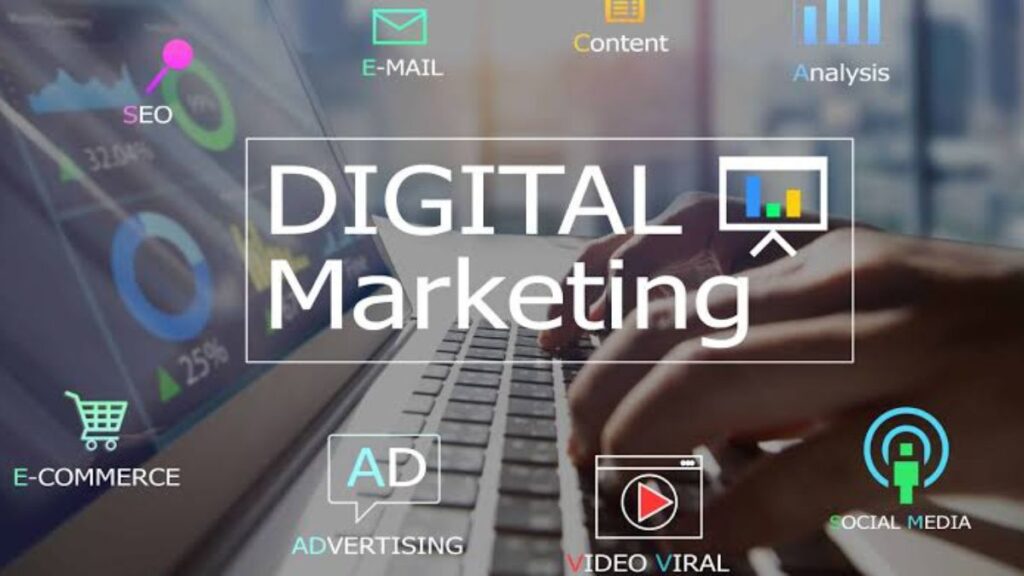In the rapidly evolving landscape of contemporary business, digital marketing has emerged as a pivotal tool for companies aiming to reach and engage with their target audiences effectively. With the advent of technology and the internet, traditional marketing strategies have given way to more dynamic and interactive approaches that harness the power of digital platforms. This article delves into the essential digital marketing strategies that are crucial for modern businesses striving to thrive in a competitive environment.
Understanding the Importance of Digital Marketing
In the digital age, where connectivity and online presence play a pivotal role in consumer behavior, businesses cannot afford to overlook the significance of digital marketing. Unlike traditional methods such as print advertisements or television commercials, digital marketing offers unparalleled reach and targeting capabilities. It allows businesses to connect with potential customers on a global scale while also enabling personalized communication and engagement.
Key Components of an Effective Digital Marketing Strategy
- Search Engine Optimization (SEO):
SEO remains a cornerstone of digital marketing, focusing on optimizing a website’s visibility in search engine results. By strategically incorporating relevant keywords, creating high-quality content, and improving website performance, businesses can enhance their organic search rankings and attract more qualified traffic. - Content Marketing:
Content marketing involves creating and distributing valuable, relevant, and consistent content to attract and retain a clearly defined audience. From blog posts and articles to videos and infographics, compelling content not only drives traffic but also establishes authority and builds trust with potential customers. - Social Media Marketing:
Social media platforms have revolutionized how businesses interact with their audience. Effective social media marketing involves leveraging platforms such as Facebook, Instagram, Twitter, and LinkedIn to engage with customers, promote products/services, and build a community around the brand. - Pay-Per-Click (PPC) Advertising:
PPC advertising allows businesses to bid for ad placement in search engines or on websites. Unlike traditional advertising models, PPC enables precise targeting based on demographics, interests, and behavior, ensuring that ads reach the most relevant audience. - Email Marketing:
Despite the rise of other channels, email marketing remains a powerful tool for nurturing leads and fostering customer loyalty. Through personalized emails, businesses can deliver tailored content, promotions, and updates directly to subscribers’ inboxes, driving conversions and sales.
Implementing an Integrated Approach
To maximize the impact of digital marketing efforts, modern businesses should adopt an integrated approach that synergizes various strategies. For instance, combining SEO with content marketing can boost organic search rankings while providing valuable information to users. Similarly, integrating social media marketing with influencer partnerships can amplify brand visibility and credibility.
Emerging Trends and Technologies
As digital marketing continues to evolve, staying abreast of emerging trends and technologies is crucial for maintaining a competitive edge. Trends such as artificial intelligence (AI) for personalized marketing, voice search optimization, and interactive content are reshaping the digital landscape. By embracing these innovations, businesses can enhance customer experiences and drive sustainable growth.
Measuring Success and Optimization
A critical aspect of any digital marketing strategy is the ability to measure performance and optimize campaigns based on data-driven insights. Utilizing analytics tools such as Google Analytics or social media analytics platforms enables businesses to track key metrics, including website traffic, engagement rates, conversion rates, and return on investment (ROI). By analyzing these metrics, businesses can identify successful tactics, refine strategies, and allocate resources more effectively.
Case Studies and Examples
To illustrate the effectiveness of digital marketing strategies in real-world scenarios, consider the following case studies:
- Case Study 1: Company A – By implementing a comprehensive SEO strategy that focused on long-tail keywords and optimizing website content, Company A achieved a 40% increase in organic search traffic within six months.
- Case Study 2: Company B – Through targeted social media campaigns and influencer partnerships, Company B successfully launched a new product, resulting in a 30% increase in sales and widespread brand recognition.
Conclusion
In conclusion, digital marketing serves as a catalyst for growth and innovation in modern businesses. By leveraging SEO, content marketing, social media, PPC advertising, and email marketing, businesses can effectively reach their target audiences, foster meaningful connections, and drive sustainable growth. As technology continues to advance and consumer behaviors evolve, adapting and refining digital marketing strategies will be essential for staying ahead of the competition and achieving long-term success in the digital era.
By embracing these strategies and remaining agile in a dynamic digital landscape, businesses can position themselves as industry leaders and seize opportunities for growth and expansion. Digital marketing isn’t just a trend—it’s a fundamental aspect of modern business strategy that empowers brands to thrive in an increasingly interconnected world.
Remember, the key to successful digital marketing lies in understanding your audience, crafting compelling content, utilizing data-driven insights, and continually optimizing your approach. By doing so, businesses can navigate the complexities of the digital marketplace with confidence and achieve their goals effectively.






